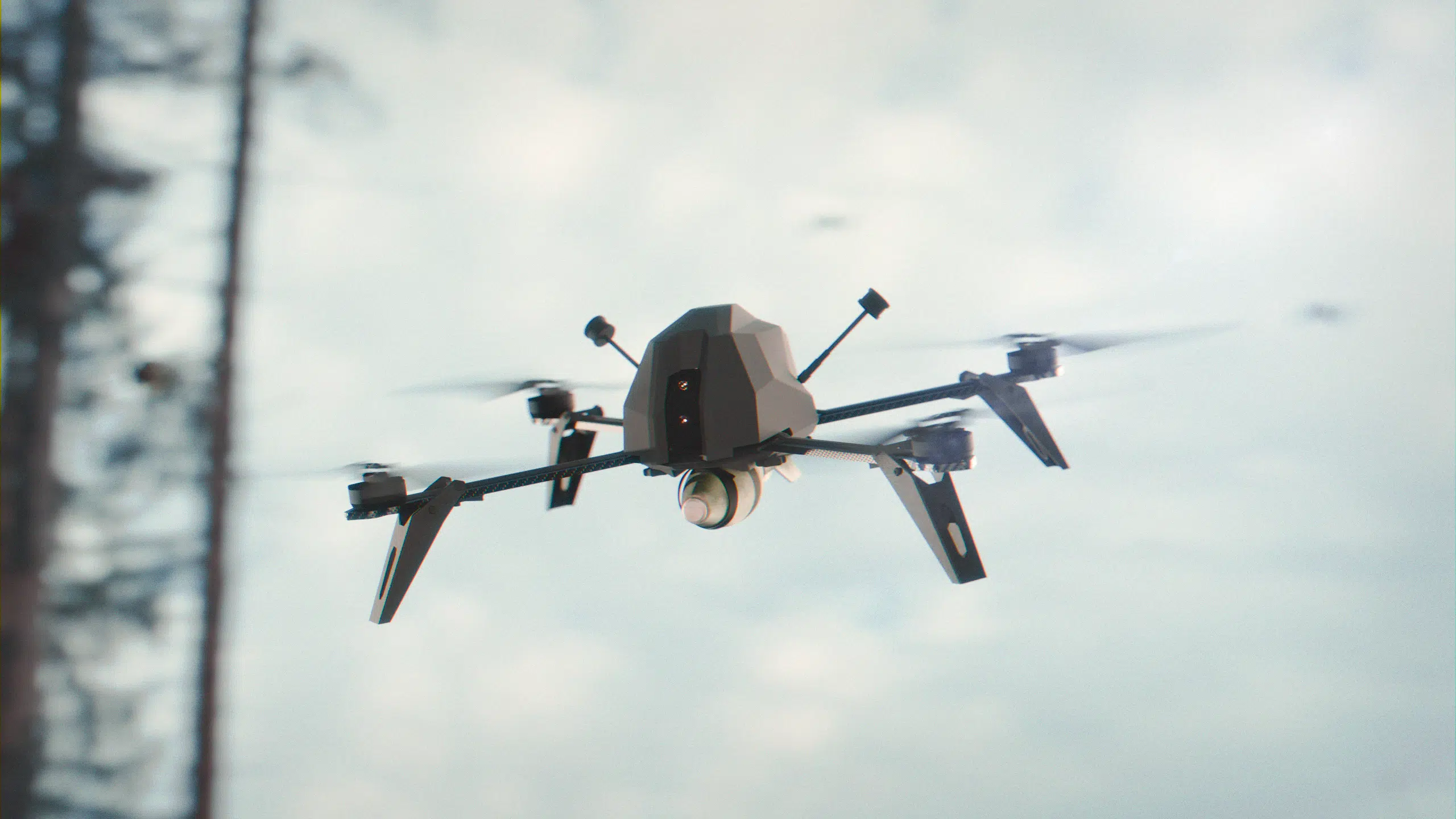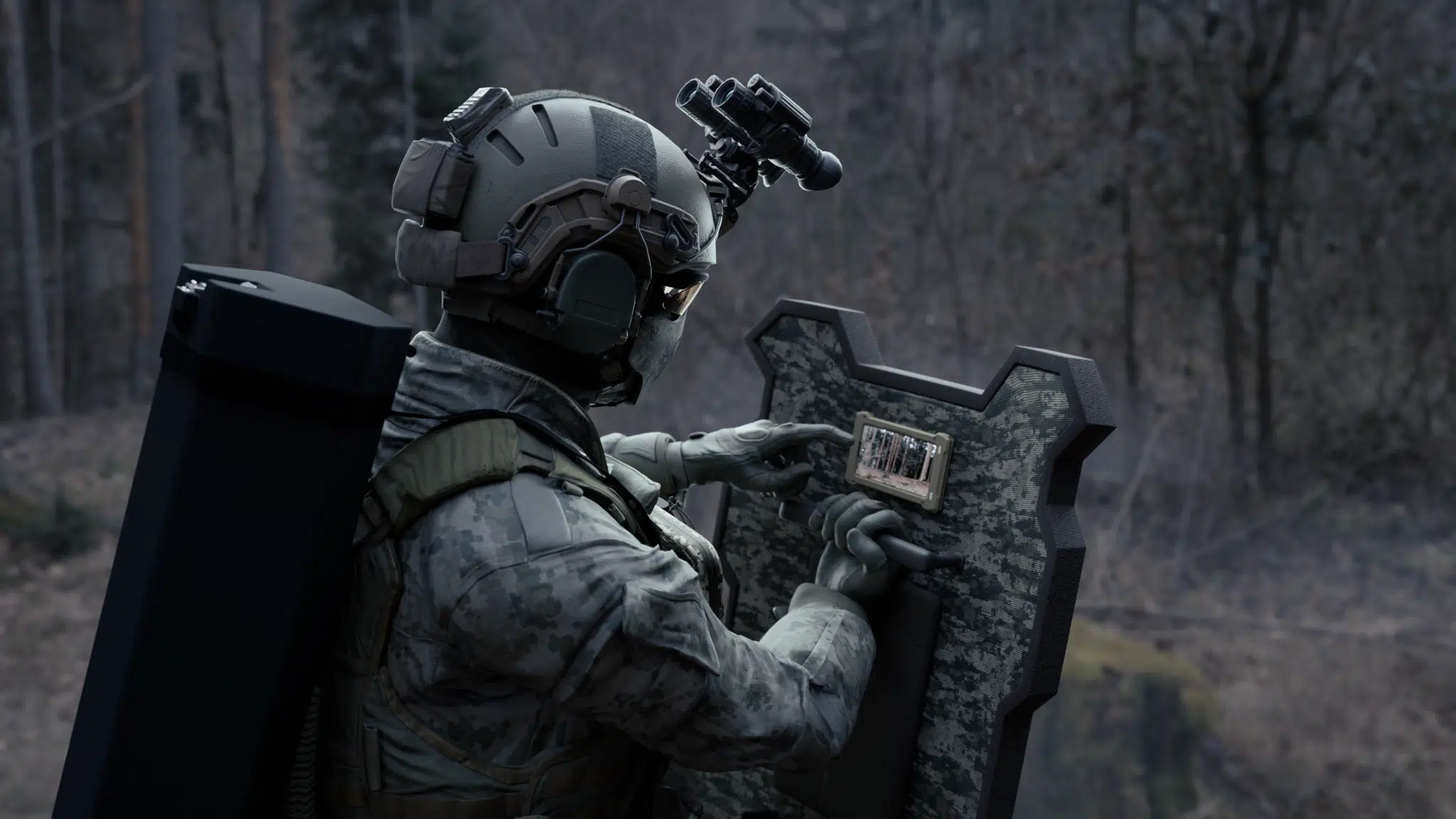In modern warfare, the ethical implications of deploying artificial intelligence (AI) in military applications need to be addressed to make drone technology as safe as possible for operators and civilians.
Since AI-powered drones have dramatically transformed combat operations, such technology needs thorough examination to establish moral and legal standards.
Definition and Capabilities of AI-Driven Drones
AI-driven drones, also known as autonomous or intelligent drones, are unmanned aerial vehicles (UAVs) equipped with sophisticated AI algorithms. This enables them to perform a variety of tasks without direct human intervention. Their capabilities include real-time data processing, autonomous navigation, target identification, and decision-making in combat scenarios.
Decision-Making in AI-Driven Drones and Autonomous Engagement
AI-driven drones make decisions based on data from sensors, cameras, and pre-programmed algorithms. These systems can process vast amounts of information to identify potential threats and execute missions autonomously. For instance, in combat scenarios, a drone like the Wasper-1 can be used to engage targets at short and mid-range distances, with its operators standing away from the danger area. We are still focusing on having operator-first drones, where the final decision rests with the operator, not the drone.
Accountability for AI-Driven Drones
When it comes to accountability, the use of AI-driven drones in military operations is a contentious issue. The primary challenge is to determine responsibility when an autonomous system makes an erroneous or ethically questionable decision. So, to completely avoid any malfunctioning drones and work out the kinks, we test them in different scenarios and secure areas. This way we can avoid delicate situations and blaming the operators, the manufacturers, or the AI developers.
Ethical Considerations in Target Selection and Engagement
The ethical implications of using AI-driven drones revolve around the principles of just war theory. For example, discrimination requires the system to accurately distinguish between combatants and non-combatants. Proportionality, on the other hand, ensures that the force used is relevant to the military advantage gained. This is why we program our drones with stringent guidelines to avoid collateral damage and unlawful engagements.
International Laws and Military Policies on AI in Combat
International laws, such as the Geneva Conventions, govern the conduct of warfare and the use of weapons, including AI-driven drones. These laws mandate that combat operations must minimize harm to civilians and comply with humanitarian principles.
Existing military policies also regulate the deployment of AI in combat, emphasizing the need for human oversight and ethical programming.
For instance, the U.S. Department of Defense’s Directive 3000.09 stipulates that autonomous weapons systems must allow for human intervention to prevent unintended engagements.
To this end, we design our drones to only follow operator instructions irrespective of mission parameters. Our focus is on successful deployment, operator safety, and the protection of human life.
Implementing Fail-Safes and Overrides in AI Systems
We address ethical implications and potential risks associated with AI-driven drones by implementing fail-safes and manual overrides. These mechanisms ensure that human operators can intervene and take control of the drone in case of malfunction or unforeseen ethical dilemmas. Here, at Orbotix Technologies, we make sure our drones can be safely used and stopped by our operators if necessary.
Ensuring Transparency and Explainability in AI Decisions
Transparency and explainability in AI decisions are vital to maintaining ethical standards in combat operations. This level of transparency helps in evaluating the ethicality of decisions and facilitates accountability. For example, we incorporate explainable AI (XAI) techniques in our drones. This enables operators to review decision-making processes and ensure compliance with ethical guidelines.
Ethical Training and Guidelines for Operators
Proper ethical training for operators of AI-driven drones is essential to ensure responsible use of the technology. Training programs should cover the ethical implications of autonomous systems, international laws of armed conflict, and the importance of human oversight. Operators must be equipped with the knowledge and skills to make informed decisions and intervene when necessary to prevent unethical actions by autonomous drones. We provide comprehensive training for our drone operators, emphasizing ethical considerations and adherence to legal standards.
The deployment of AI-driven drones in combat operations offers advantages in terms of efficiency and risk reduction. However, the ethical implications of using such technology cannot be overlooked. Ensuring accountability, adhering to international laws, implementing fail-safes, and providing ethical training are crucial steps in addressing the ethical challenges posed by AI-driven drones.
Discover how we’re setting new standards in defense technology by providing advanced solutions that anticipate and adapt to the evolving dynamics of security operations.




